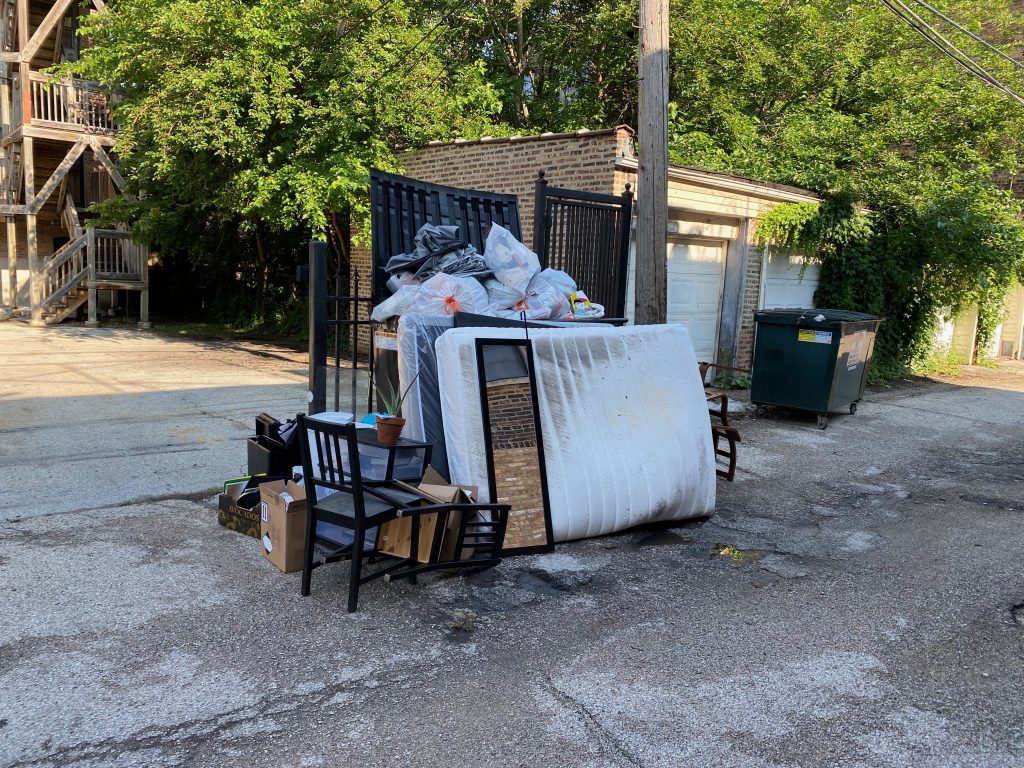
The first and fifteenth of every month in our studenty neighborhood see a flowering of particle-board bookshelves, dressers, and chairs, plastic storage tubs, and chunky mattresses. People are moving out– moving back home, moving to another city, moving to a job or a grad school or the Army– and leaving their Ikea stuff behind.
The economic-rationality argument is double. This type of furniture is cheap enough that it makes sense to buy another suite (pronounced “suit,” at least by people on the radio when I was a kid) of the same stuff in Austin, Cleveland, Walla Walla or wherever you’re going. Cheap in the sense of price. And it’s cheap enough (cheap in the sense of quality) that you can’t give it away. The piles of Ikea furniture left in the alleyway will not, I warrant, be gathered by other students looking to fill a room. Especially if the rain has deformed the fiberboard.
And I’m sorry to say that it’s doubled by a social rationality. It used to be that when you moved, you took some furniture with you and you gave some to other members of your grad-school cohort, or whatever pod you swam with. I still have the odd pot that belonged to X, a bookshelf that once housed Y’s Hegel Gesamtausgabe, a pair of record crates from Z. Buying furniture was inconvenient and expensive enough that we kept it circulating in the gang. Some of my old junk may still be enjoying this form of distributed immortality. When I moved cross-country, my only regret was that I hadn’t given away more stuff.
Now when I see these heaps of Ikea detritus left on the street, I also see the intersecting curves of devaluation and social desolidarization. The “Bowling Alone” ethos leaves people with no one to give the stuff to, as the price/quality ratio gives no reason to take it. Recycling has devolved into decycling. “Bad for the planet!” you may say. Yes, and bad for the global villagers too.
